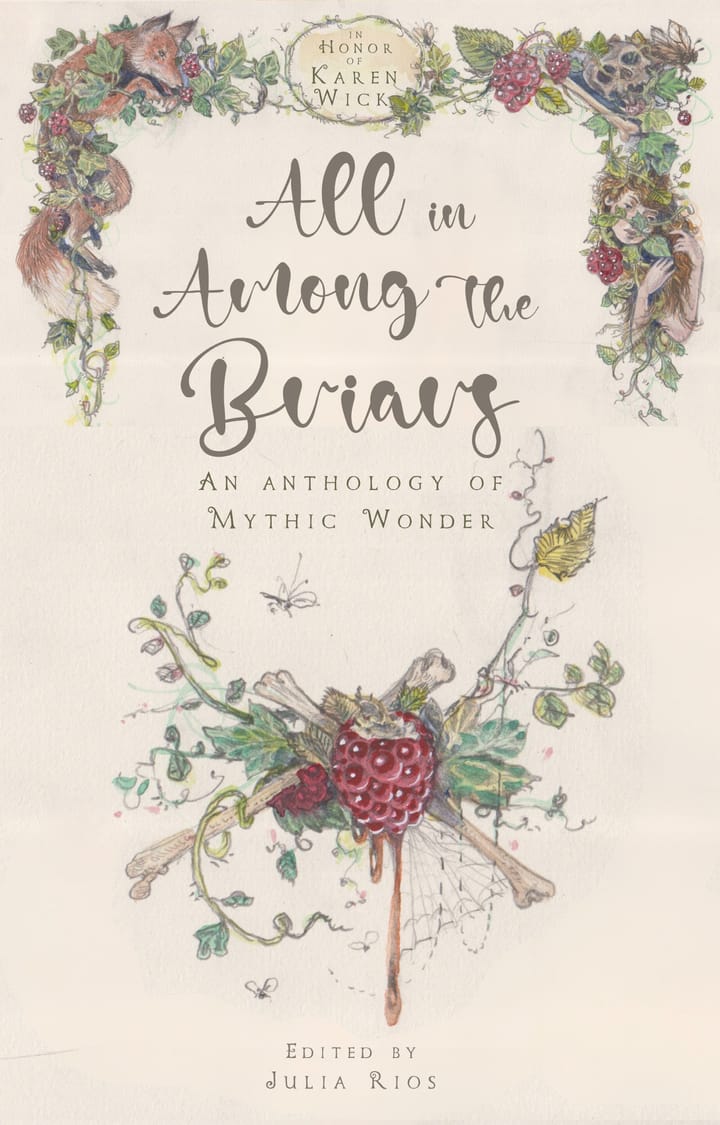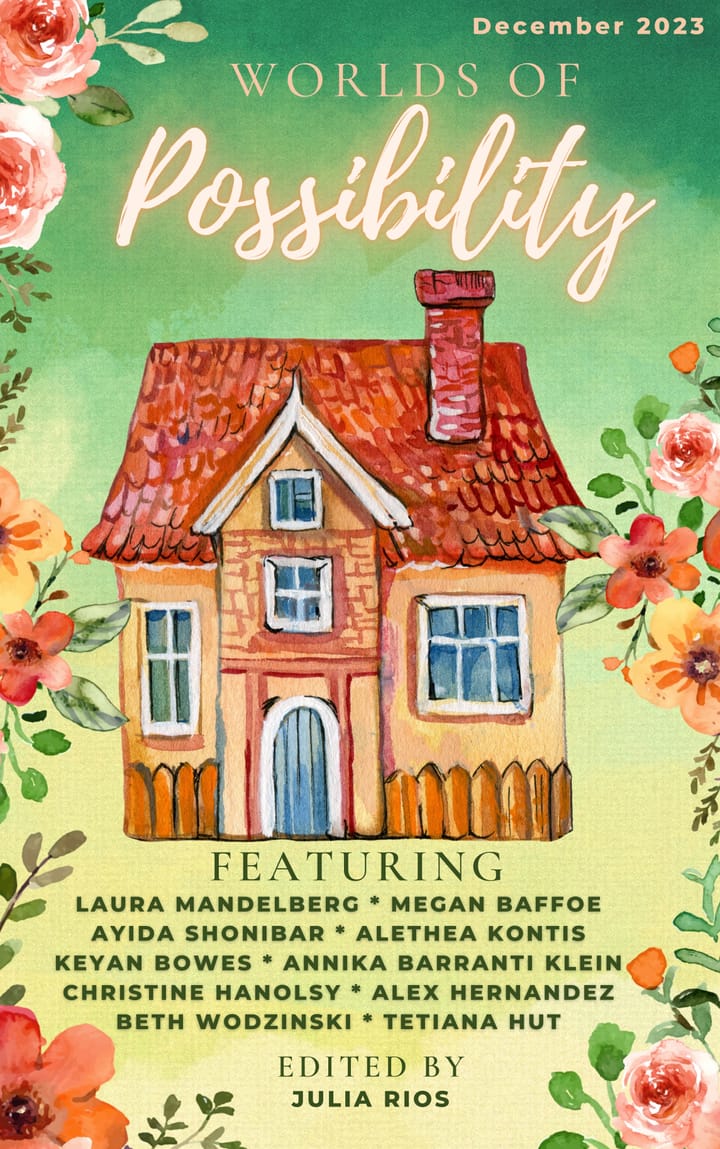The Book You Find When You Really Can't Afford to Get Pregnant: A story by Jeana Jorgensen
"The Book You Find When You Really Can't Afford to Get Pregnant" by Jeana Jorgensen, a gorgeous story about information, healthcare, and bodily autonomy.

In 2018, I had the honor of judging the flash fiction contest for Spider Road Press. The contest asked for feminist flash fiction stories about women, and offered a $300 cash prize. The first place winner was "The Book You Find When You Really Can't Afford to Get Pregnant" by Jeana Jorgensen, a gorgeous story about information, healthcare, and bodily autonomy. That story was published as a little bonus in the back of a novel called Companion of the Ash by Kate Spitzmiller, but it's never been available online until now!
Listen to "The Book You Find When You Really Can't Afford to Get Pregnant: a story by Jeana Jorgensen" on Spreaker.Last week the United States Supreme Court overturned Roe v. Wade, making it possible for individual states to take away the right to medical care and bodily autonomy for pregnant people. I've thought a lot about this story in the wake of that decision, and I was sad that it wasn't easy to find, so I reached out to Jeana Jorgensen and asked if I could reprint it. You'll find the text of the story below, and you can also listen to an audio version.
The Book You Find When You Really Can't Afford to Get Pregnant
by Jeana Jorgensen
I used to joke that I studied old whores so I wouldn’t have to become one.
First generation college student, and quick to learn languages and assemble clues from cultural context to get a glimpse of the whole, so academia was my way out of a depressed rural area where trafficking was a major concern. Labor trafficking and sex trafficking both, for what it’s worth. Same as where I’ve ended up, come to think of it.
I didn’t realize how right I would be with the whore quip until much later.
But my editor wasn’t amused, so it’s not on the book flap of my monograph, From Crocodile Dung to Concubines: Sex and Contraception in the Ancient World, which you are holding in your hands right now.
These are some of my favorite facts:
- Ancient Egyptians used a mixture of crocodile dung and honey as a contraceptive paste.
- We have a lamb intestine condom dating from China in the 1400s.
- Sylphium, a plant that was a functional contraceptive, was so effective that the Romans drove it extinct.
One of my friends, a public health scholar, remarked over coffee that syphilis was the canary in the coal mine for HIV. See syphilis rates go up: within a few years, HIV rates increase too.
I wish I’d picked her brain about that more. I wish I’d asked for more details on how syphilis was cured with penicillin – in the 1940s, right? – and who’d first figured that out. Mold, right? But which color? And on bread, or something else? Apples, maybe? Cheese?
We grow apples. We make cheese and bread. I started out pretty useless at all these endeavors, back when the commune first formed, and when I was lucky enough to worm my way in.
Not like a PhD matters much these days. Mostly, I work same as everyone else on daily tasks, and people come to me for help not getting pregnant. Nobody needs babies underfoot when we’re trying to fix the water table and remember crop rotation.
I really wish I’d spent more time having coffee with my colleague, and not just because coffee is rare these days.
Because right now, I’m staring at a piece of bread that I’ve left out during rainy, damp days. I know enough about syphilis, having chaired enough panels at the medical anthropology conferences, to know what the lesions look like in the first stage. The stage when it’s most communicable. We haven’t seen condoms in months, rubber being one of the first industries to collapse, and syphilis can spread through skin-to-skin contact anyway.
The bread is now textured enough, with creamy grey ripples and swirls, to seem like it’s staring back at me. We haven’t been able to attract or capture a mycologist, so I’m on my own here.
I figure I have two options:
1) I eat it myself, and see if I die.
2) I feed it to the infected, and watch what happens to them, prepared to run if they die, or stay and save lives if they don’t.
If the world weren’t ending around me, I’d be writing my next conference paper, speculating on how witches and wise women in early modern Europe most likely faced a similar dilemma: deploy your knowledge to help people, knowing that it might come back and bite you, or live on the outskirts of civilization, waiting until people were desperate enough to come to you for help, despite the risks.
It would be a more creative conference paper than what I usually present. I believe it would be well received.
The second stage of syphilis is when it goes dormant, possibly for decades. The third stage is when it flares back up, rotting the cartilage in your nose and ears, possibly making you blind and mad. And then death.
It would kill our community with more finality and fatality than marauders. To say nothing of the HIV that would likely follow.
I’m leaving a copy of these notes tucked inside my monograph. It’s the only copy left, since even before the world burned, the libraries did. If – when – I’m no longer here, you’ll want this book to help with herbs and home remedies, methods of midwifery and contraception that are better than nothing, if not effective enough to be absorbed into Western biomedicine.
The bread beckons me. The ancient midwife plucks the last sprig of sylphium to serve her community.
Jeana Jorgensen earned her PhD in folklore from Indiana University. She researches gender and sexuality in fairy tales and fairy-tale retellings, folk narrative more generally, body art, dance, and feminist/queer theory. Her new book Folklore 101 is available everywhere and her poetry has appeared at Strange Horizons, Crow & Cross Keys, Liminality, Glittership, and other venues.
Honorable Mentions from the 2018 Spider Road Press Flash Fiction Contest
There were a few honorable mentions from the 2018 Spider Road Press flash fiction contest, and those are all available to read at the Spider Road Press website. They are:
- “Egest Leporidae” by A.A. Balaskovits
- "How He Got That Way” by Lara Kristin Herndon
- "It Took Adrienne Ninety-Seven Minutes to Write This Email" by Laura McGehee


